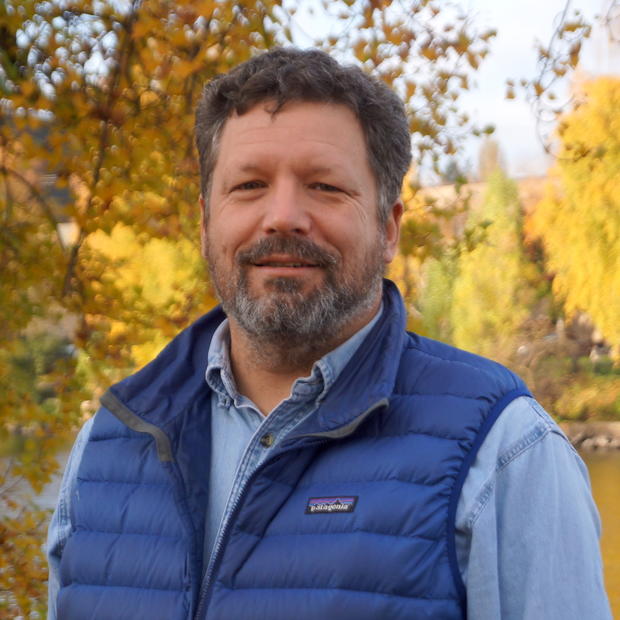When will the state of Washington live up to its responsibility to protect our waters from pollution? Too many of our waterways fail to meet federal and state standards necessary to protect salmon, Southern Resident orca whales and human health. Public waterways are part of the commons that sustains us all. And protecting the commons is a central responsibility of government.
Our state’s leaders must realize that a healthy regional ecosystem, the health of our communities and true prosperity are intertwined, and they must take prompt action to control sources of pollution, or we worsen the sickness that already imperils the health of our region.
On July 24, the newly born calf of the orca whale known as J35 died after only half an hour of life. We witnessed this mother carrying her dead calf for over two weeks in apparent mourning. For a short period of time, we were captivated by this news, but now will we act to remedy the underlying issues? It is nothing short of a wakeup call.
Our resident J, K and L orca pods have not had a successful birth in three years and are at risk of extinction. If we don’t act swiftly and boldly we will lose them forever.
The solutions have been clear for years. Our orcas need clean water and abundant salmon runs in order to survive. Yet our state has consistently failed to adequately fund habitat recovery or enforce existing laws that protect state waters from toxic pollution. Failure to enforce clean water laws allows pollution to continue that threatens the health of this endangered population, the salmon they depend on, and people who eat fish from Puget Sound waters.
There are many sources and types of pollution that harm waterways and wildlife, but one in particular illustrates this failure clearly. Polychlorinated biphenyls, or PCBs, are a major ongoing concern in our waterways. These highly toxic, man-made chemicals were manufactured from 1929 until their production was banned in 1979, but they are still inadvertently created in manufacturing processes and still discharged to state waterways. Studies show that PCBs cause a number of adverse health effects, which include effects on the immune system, reproductive system, nervous system and endocrine system. They have been shown to cause cancer in animals and studies in humans support evidence that they are carcinogenic.
Our Southern Resident orca whales have some of the highest overall toxic loads and, in particular, highest PCB levels of any marine mammals anywhere in the world. Newborn calves receive a heavy dose of pollutants through their mother’s milk, part of the reason that the first calf born to a mother, who has accumulated years of toxic substances, often does not survive. And these toxics are a problem throughout the food chain. Recent research demonstrates that Chinook salmon in the Snohomish River contain PCBs at levels that impair the survival of the fish.
The federal Clean Water Act prohibits toxic pollution in toxic amounts, and requires that we recover every waterway that doesn’t protect beneficial uses, including survival of aquatic life. It also gives individuals and communities the right to take legal action to protect themselves from pollution when the agencies responsible fail to step in. Just this month, Puget Soundkeeper filed a Clean Water Act case against the Boeing Company for what we believe are discharges of PCBs to the Duwamish River, a federal Superfund site, at levels thousands of times above the legal limit. Although Boeing has contributed greatly to the cleanup of legacy contamination in the river, this does not exempt them or any polluter from liability for any ongoing discharge that violates clean water laws. For five years, the state Department of Ecology was aware of pollution issues at the site, but took no meaningful action to stop the problem.
Pollution from PCBs is one of the most common causes of fish consumption advisories throughout our state, yet our state fails to require compliance from major dischargers. This failure must be addressed.
The state Department of Health warns us that we should eat less than one pound of resident Chinook salmon from Puget Sound in a month. Orca whales can eat over 300 pounds in a day.
In order to recover Chinook salmon and orca whales, Gov. Jay Inslee and state Department of Ecology Director Maia Bellon must find a way for the agency to fulfill its mandate to protect public resources and ensure the protection of aquatic life. Our state Legislature can increase funding for enforcement, but this requires political will and a recognition of how much we stand to lose by allowing contamination of our shared resources to continue. The state must also stand up to the Trump administration, which just opened the door to revisiting the EPA’s approval of state water quality standards at the behest of local industries.
State standards were strengthened in order to protect public health from toxics like PCBs. Standing strong against this end run is a crucial step for our state if we are to make the kind of progress on water pollution that are essential for orcas, salmon and public health.
At its formation in 1970, the Washington Department of Ecology was the first agency of its kind in the nation, formed in response to public demand. It would serve as a model for the federal Environmental Protection Agency, started later in the same year, and was part of an overall movement that gave rise to the first Earth Day, the Clean Water Act and the Endangered Species Act. We must recapture that level of energy and support to keep our waters clean.
The health of our orcas is an indicator of the health of the entire Salish Sea. By acting now to protect them, we will also protect ourselves.



